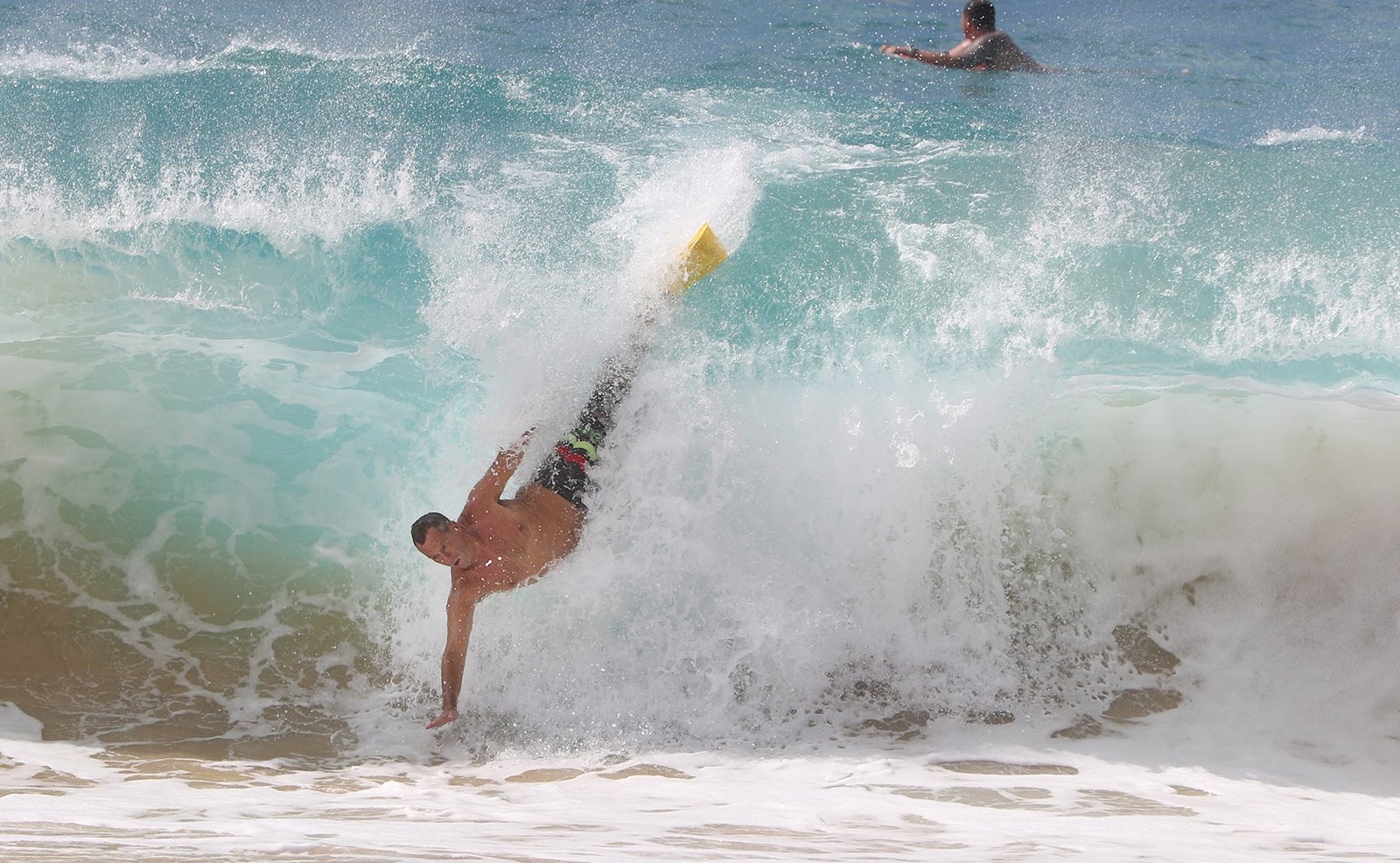For more than a month, Shirley McPherson has been doing absolutely everything she can think of to try to find her father, a wheelchair-bound Lahaina resident who hasn’t been heard from since the senior housing complex he lived in burned to the ground on Aug. 8.
The Australian resident has filed missing persons reports with the Red Cross, the Maui Police Department and the FBI. She’s submitted DNA samples, scoured community forums, talked to her father’s neighbors, and been in regular contact with the British consulate about the fate of her Scottish-born father.
But after all the efforts she’s made the latest official list of people still unaccounted for, released on Friday, did not include Alfie Rawlings, her father’s name. For the second week in a row, he wasn’t among those verified as missing and McPherson said she “lost it.”
“It just made me go in a complete downward spiral,” she said.

FBI and county officials said Friday the number of people confirmed missing in the aftermath of the fire has dropped to 66, with an additional 80 people who could be missing but whose information hasn’t been vetted enough to confirm one way or another. They did not list the names of the 80 unverified people.
McPherson says she’s since been told it was likely a clerical error that his name has not been on the last two official lists.
Errors understandably abounded in the early days of the search, when 3,000 people were initially reported as being unaccounted for after the fire. Sorting through those names and locating people scattered across the island has been a massive undertaking. It’s also one that McPherson acknowledges is being conducted — at least in part — by people dealing with trauma of their own.
But it’s also a process that families say has been overly complicated and exhausting to navigate. Since Aug. 9 families have been told to take more than half a dozen different courses of action to search for their loved ones.
People have struggled to get family members on the official FBI list, to submit DNA samples from out of state, to get through to a live operator, to get a response even when going through the appropriate channels.
“It’s just an absolute mess,” McPherson said. “I don’t think anyone’s actually working together.”
In the meantime, conspiracy theories and general distrust of the process are building in a community frustrated by the lack of concrete answers about the fates of their friends and neighbors.
“It’s been a nightmare,” said Dawn Matsuda-Boucher, whose ex-husband was recently added back onto the official FBI list after weeks of outreach to both the FBI and the Maui Police Department. “Trying to find somebody with no communication at all — it’s been really hard.”
A Massive Undertaking
The scramble to find people following the fire was initially something of an all-hands-on-deck situation. Community members banded together to crowdsource what became huge online lists of missing people. The Red Cross collected names and searched for people. Nonprofit and church groups mounted their own searches as well.
Amidst all this, the Maui Police Department asked the FBI to help with the overwhelming task of identifying who was truly missing.
The FBI created its initial list by pulling from every possible source, said Steven Merrill, the special agent in charge of the FBI’s Honolulu office. That meant combining community lists, police reports, Red Cross and community shelter lists, and of course, information from people who contacted the FBI directly.
The FBI then tried to use a variety of tools to narrow the list down to people who could credibly be considered missing. FBI workers checked online databases and social media, made calls to try to verify if a person was indeed in the area at the time of the fire, and worked to contact missing people or see if anyone had been in touch with them.
All told, the FBI was able to account for the whereabouts of nearly 2,700 people reported missing over the last month, Merrill said.

But the FBI Is not conducting full missing persons investigations. Merrill said the FBI’s job is to “get that list down as small as we can” so that Maui police do full investigations of credible cases. What MPD does with the list is up to the department, Merrill said, and being on the FBI list does not mean MPD will open an investigation.
The MPD announced last week that in order for police to start a missing persons investigation, the agency needs people to file a report directly with the department — even if they have already given information to the FBI.
MPD did not respond to a request for an interview for this story.
It’s not possible to say whether the FBI vetting a list and then the local law enforcement agency conducting the missing persons search is a typical process, because the disaster in Maui is so far beyond the norm of what police departments are used to dealing with, Merrill said.
“This isn’t like a traditional law enforcement event,” Merrill said.
It does differ, however, from how the missing persons search was conducted after the Camp Fire in California, where 85 people were killed in 2018 and thousands were initially reported missing — the disaster that most closely parallels what Maui is experiencing.
Within three days of the Camp Fire, the Butte County Sheriff’s Office set up a central call center staffed to intake missing persons reports. Instead of having the Red Cross collect missing persons reports, they asked people who lived in the area to contact the nonprofit to mark themselves as safe — thus getting assistance but eliminating the possibility of having people with missing loved ones trying to file reports in multiple places.
Since the Aug. 8 fires, the protocol for who to contact in Hawaii and how has changed at least nine times, according to volunteers who have been working on community-based search efforts.
An Exhausting Process
Dawn Matsuda-Boucher emailed Maui police several times at the address set up specifically for reporting missing people starting on Aug. 22. In emails, which she also provided to Civil Beat, she sent the police pictures of her ex-husband — who she last spoke to on the day of the fire — along with his date of birth, address, location at the time of the fire, and her contact info, but only got automated responses.

She was able to get Douglas Matsuda-Boucher on the FBI’s first publicly posted missing persons list but could get no information from the FBI when he was removed from the second list and then put back on the third list.
Bubba Ridgeway called the Maui police to file a missing persons report for his brother, Sean Ridgeway, on Aug. 23. He said the person who answered the phone asked him why he would want to file a missing persons report for his brother, a homeless man who’d had multiple run-ins with police in past years.
Discouraged but not deterred, Ridgeway next filed a report with the Red Cross and the FBI, who told Ridgeway — who lives in Seattle — that a local field office would be in contact to help him provide DNA. Days later, he reached out to the local office but was told they had no record of the request in their system.
“They didn’t seem interested in it,” said Ridgeway.
Ridgeway said he was eventually contacted by a much more compassionate Maui police officer who took a missing persons report on Tuesday. In the meantime, a community member helping to search for homeless people reached out to Ridgeway and began circulating fliers of his brother around the island. Two days after he successfully filed a missing persons report, a Red Cross worker called to say there had been a credible sighting of his brother.
In the midst of the ongoing confusion, community-led volunteer efforts to search for missing people have continued. A crowdsourced list of missing people contains about 170 people who were removed from the most recent FBI list but are still marked as unaccounted for on the community list, said Deb Mader, a Maui resident who moderates an active social media forum for people searching for missing loved ones.
That doesn’t mean those 170 people are missing, Mader said. Dozens of volunteers are going through the list to try to verify that each person has indeed been accounted for. Ideally, she said, the FBI would share the names of the people that it has found so that they can get the lists aligned.
Community members are also still trying to track down the whereabouts of about two dozen homeless people who are not on the FBI list but could have been in the Lahaina area and have not been found since the fire.
McPherson isn’t holding out much hope that her father is still alive. She’s spoken to neighbors who saw him being pushed in a wheelchair outside of the housing complex by Joe Schilling, a neighbor whose last communication was that he was in a unit with five other residents and they were trapped. Schilling’s remains were identified in August.
McPherson, a nurse whose husband is a police officer in Australia, mailed multiple DNA samples to Maui police in August, hoping to get some closure. It took 11 days for the samples to arrive, only for McPherson to be told that they had been damaged in transit and were unusable. In the meantime, her father was removed from the FBI list with no explanation.
McPherson said she is submitting another DNA sample this week in the hope of getting some closure. Knowing for sure what happened to her father would be an enormous relief, she said.
“Especially to know for definite that he was with Joe,” she said. “That he didn’t die by himself.”
Anyone searching for a missing loved one may call the Red Cross at 800-733-2767. For the Red Cross number, press 4, be prepared to follow prompts for the Maui Wildfires, and be ready to leave contact information for someone to call you back. The FBI is also asking people to file a missing persons report at (808) 566-4300 or HN-COMMAND-POST@ic.fbi.gov
Civil Beat’s coverage of Maui County is supported in part by a grant from the Nuestro Futuro Foundation.







Leave A Comment